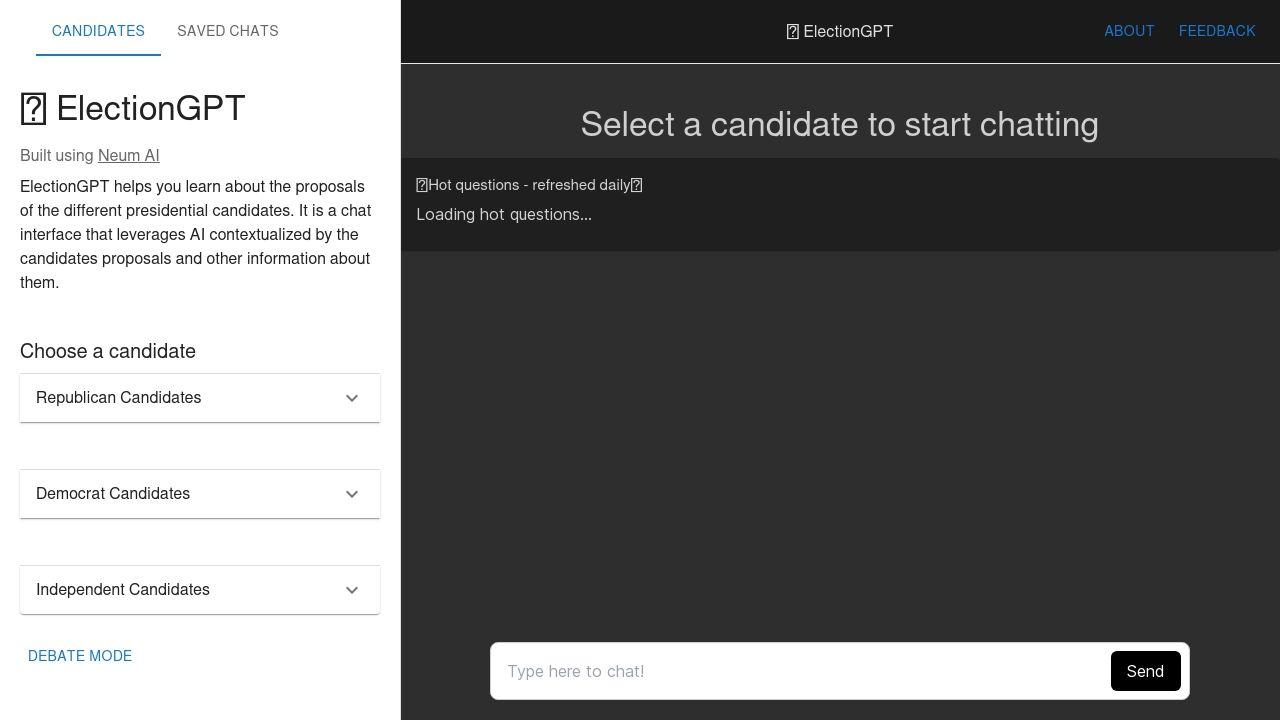How ElectionGPT can help you:
- Provides in-depth insights into presidential candidates' proposals and policies.
- Facilitates a better understanding of the political landscape for the 2024 US presidential election.
- Offers daily refreshed hot questions for more engaging and current discussions.
Why choose ElectionGPT: Key features
- Up-to-date information on candidates and their election campaigns.
- User-friendly interface for easy navigation and exploration.
- Ability to focus on hot topics and questions around the election.
Who should choose ElectionGPT:
- Voters seeking to make informed decisions in the upcoming election.
- Political enthusiasts interested in tracking the 2024 US presidential election developments.
- Researchers and journalists covering political campaigns and candidates.


